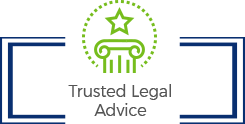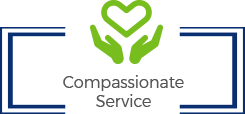Workplace harassment is unwelcome conduct based on race, color, religion, sex, pregnancy, national origin, age, or disability. It has a broad definition, but it becomes unlawful when enduring the conduct becomes a condition of your employment, or the behavior is severe or persistent enough to create a hostile work environment. However, you have important rights. Harassment is a form of employment discrimination that violates Title VII of the Civil Rights Act of 1964, the Age Discrimination in Employment Act of 1967 (ADEA), and the Americans with Disabilities Act of 1990 (ADA).
If you’ve experienced workplace harassment, we want to help. At Noble Law, we understand the toll it takes on your life. You deserve a safe workplace, and our employment law firm is here to help advocate for you and help restore your dignity, defend your compensation, and move toward closure. For those in Greenville, South Carolina, consult a workplace harassment lawyer.

Common Types of Workplace Harassment Cases
Harassment in the workplace can be committed by supervisors, coworkers, clients, or third-party vendors. It is important to recognize that unlawful harassment is not limited to physical conduct.
Verbal remarks, visual displays (such as offensive images or gestures), and digital communications—such as harassing emails, texts, or social media messages—can all constitute actionable harassment under the law. What matters is whether the behavior is unwelcome and pervasive enough to create a hostile, intimidating, or abusive work environment.
Types of harassment include the following:
Sexual Harassment
Sexual harassment refers to any unwelcome sexual behavior that contributes to an uncomfortable or hostile work environment. This can take many forms, including unwanted sexual advances or requests for sexual favors, inappropriate comments or jokes with sexual undertones, physical touching or suggestive gestures, and the display of explicit images or materials.
Quid pro quo harassment in the workplace happens when a person in a position of power, like a supervisor, offers job benefits (such as a promotion or raise) in exchange for sexual favors or threatens negative consequences (like demotion or termination) if those favors are refused. It’s a form of sexual harassment that directly ties employment decisions to the acceptance or rejection of unwelcome sexual advances.
Racial Harassment
Racial harassment involves any unwelcome behavior, slurs, or offensive comments directed at an individual because of their race, ethnicity, or national origin. This can include racial jokes, derogatory remarks, stereotypes, or insults that demean or marginalize someone’s identity.
Gender-Based Harassment
In many cases, this type of harassment targets individuals who do not conform to traditional gender roles or expectations, such as women in leadership, men in caregiving roles, or anyone whose appearance or behavior challenges conventional norms. These actions create a hostile work environment and deeply affect an employee’s sense of belonging and professional advancement.
Religious Harassment
Religious harassment can include mocking or ridiculing someone’s faith, attire, rituals, or observances, and pressuring them to participate in or refrain from religious activities. Legally, such behavior becomes harassment when severe or pervasive enough to create a hostile or intimidating work environment or interfere with the employee’s ability to perform their job.
Workplace Harassment Laws in South Carolina
Workplace harassment is prohibited under federal law, including Title VII of the Civil Rights Act of 1964, which makes it unlawful to harass an individual based on protected characteristics such as race, sex, religion, and national origin, among others. The Equal Employment Opportunity Commission (EEOC) is the federal agency responsible for enforcing these laws, investigating complaints, and pursuing remedies where violations are found.
The South Carolina Human Affairs Commission
The South Carolina Human Affairs Commission (SCHAC) partners with the Equal Employment Opportunity Commission (EEOC) to enforce federal protections against workplace harassment. SCHAC accepts and investigates complaints, particularly those involving employers with fewer than 15 employees that may not fall under federal jurisdiction, offering recourse to individuals experiencing discrimination in the workplace.

Steps to Take If You’re Facing Workplace Harassment in Greenville
If you’re experiencing workplace harassment in Greenville, SC, taking proactive steps to protect your rights and well-being is crucial. Acting early, staying organized, and understanding your legal options can empower you to move forward with confidence:
- Document the Harassment: Keep detailed records of each incident, including dates, times, locations, what was said or done, and who was present. Save any emails, texts, or messages related to the harassment, and gather statements from witnesses when possible.
- Know your rights—if you have been harassed at work, remember that the law is on your side. You don’t have to put up with it, and you don’t have to suffer in silence. Knowledge is power. The more you know about Title VII and other employment law statutes, the more control you can take over the situation.
- Report the Harassment Internally: Before pursuing legal action, you must generally report the harassment to your employer through established channels—typically a supervisor, Human Resources, or another designated authority. This step is often required to preserve your right to file a legal claim later.
- File a Claim with the EEOC: If the harassment continues or the internal response is inadequate, you can file a formal complaint with the U.S. Equal Employment Opportunity Commission (EEOC). In South Carolina, you typically have 30180 days from the date of the last incident to file a claim. The EEOC may investigate, attempt mediation, or issue a “Right to Sue” letter that allows you to take legal action.
Finally, consult a workplace harassment lawyer, especially if your complaint involves complex facts, retaliation, or your employer fails to address your concerns.
How The Noble Law Can Help You
The Noble Law can leverage the full power of state and federal employment laws to help you pursue the justice and compensation you deserve.
Our employment attorneys will work with you personally to gain an understanding of the outcome you want and the types of compensation that are most important to you so that we can tailor a legal strategy suited uniquely to you.
Prompt action is a key component to legal success. Evidence tends to fade over time. Key witnesses may move out of state and be difficult to reach. The sooner a Greenville workplace harassment attorney can begin working on your case, the better chance they will have of helping you obtain the favorable result you want and deserve.
Compensation & Legal Remedies for Workplace Harassment Victims
Victims of workplace harassment may be entitled to several forms of compensation, depending on the circumstances of their case.
If you were terminated or had to resign due to the harassment, you could be awarded back pay, covering lost wages and benefits. In some cases, a successful claim might lead to reinstatement—either returning to your previous role or being placed in the position or promotion you were unfairly denied.
Additionally, you may be eligible for damages related to pain and suffering, which address the emotional distress and psychological impact of the harassment. Courts may also require the employer to cover your legal expenses, including attorney fees and related costs.
Schedule a Consultation with The Noble Law
The Noble Law, a women-owned practice, is a recognized leader in employment law with offices in North Carolina and South Carolina. We are committed to achieving results with integrity and empathy for the client’s journey. If you believe you have experienced workplace harassment, contact us today to schedule a confidential legal consultation in Greenville, South Carolina. We are your trusted counsel for workplace disputes.

Learn More
Here at The Noble Law, we are committed to educating our communities in North Carolina and South Carolina about employment law and their rights in the workplace. We believe part of our job as an employment law firm is to share our expertise with others. Explore our resources, including more employment law videos, and keep up with our employment law firm news by following Noble Notes.
Along with representing clients with claims of workplace harassment, sexual harassment, and workplace assault, we also represent workers in other areas of employment law. These areas include executive compensation disputes; workplace discrimination; retaliation and whistleblower; and pay, overtime, and leave. Learn more about our employment law firm’s Practice Areas and if you are interested in speaking with one of our employment attorneys in North Carolina or South Carolina, contact us today.







